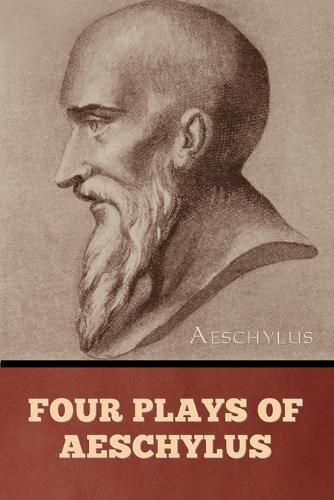Readings Newsletter
Become a Readings Member to make your shopping experience even easier.
Sign in or sign up for free!
You’re not far away from qualifying for FREE standard shipping within Australia
You’ve qualified for FREE standard shipping within Australia
The cart is loading…






"Four Plays of Aeschylus" refers to a collection including The Suppliant Maidens, The Persians, The Seven Against Thebes, and Prometheus Bound. These plays, written by the ancient Greek tragedian Aeschylus, are considered foundational works of Western drama.
The Suppliant Maidens:
This play tells the story of the Danaids, fifty daughters of Danaus, who flee to Argos to avoid forced marriage to their cousins, the sons of Aegyptus.
The Persians:
The oldest surviving Greek tragedy, The Persians depicts the Persian court's reaction to their defeat at the Battle of Salamis.
The Seven Against Thebes:
This play focuses on the conflict between the brothers Eteocles and Polynices, who fight for control of Thebes, and their mutual destruction.
Prometheus Bound:
Prometheus is chained to a rock for defying Zeus and giving fire to humanity. This play explores themes of rebellion, suffering, and divine power.
About The author
Aeschylus (525/524 - c. 456/455 BC) was an ancient Greek tragedian often described as the father of tragedy. Academic knowledge of the genre begins with his work, and understanding of earlier Greek tragedy is largely based on inferences made from reading his surviving plays. According to Aristotle, he expanded the number of characters in the theatre and allowed conflict among them. Formerly, characters interacted only with the chorus.
Only seven of Aeschylus's estimated 70 to 90 plays have survived in complete form. There is a long-standing debate regarding the authorship of one of them, Prometheus Bound, with some scholars arguing that it may be the work of his son Euphorion. Fragments from other plays have survived in quotations, and more continue to be discovered on Egyptian papyri. These fragments often give further insights into Aeschylus' work. He was likely the first dramatist to present plays as a trilogy. His Oresteia is the only extant ancient example. At least one of his plays was influenced by the Persians' second invasion of Greece (480-479 BC). This work, The Persians, is one of very few classical Greek tragedies concerned with contemporary events, and the only one extant. The significance of the war with Persia was so great to Aeschylus and the Greeks that his epitaph commemorates his participation in the Greek victory at Marathon while making no mention of his success as a playwright. (wikipedia.org)
$9.00 standard shipping within Australia
FREE standard shipping within Australia for orders over $100.00
Express & International shipping calculated at checkout
"Four Plays of Aeschylus" refers to a collection including The Suppliant Maidens, The Persians, The Seven Against Thebes, and Prometheus Bound. These plays, written by the ancient Greek tragedian Aeschylus, are considered foundational works of Western drama.
The Suppliant Maidens:
This play tells the story of the Danaids, fifty daughters of Danaus, who flee to Argos to avoid forced marriage to their cousins, the sons of Aegyptus.
The Persians:
The oldest surviving Greek tragedy, The Persians depicts the Persian court's reaction to their defeat at the Battle of Salamis.
The Seven Against Thebes:
This play focuses on the conflict between the brothers Eteocles and Polynices, who fight for control of Thebes, and their mutual destruction.
Prometheus Bound:
Prometheus is chained to a rock for defying Zeus and giving fire to humanity. This play explores themes of rebellion, suffering, and divine power.
About The author
Aeschylus (525/524 - c. 456/455 BC) was an ancient Greek tragedian often described as the father of tragedy. Academic knowledge of the genre begins with his work, and understanding of earlier Greek tragedy is largely based on inferences made from reading his surviving plays. According to Aristotle, he expanded the number of characters in the theatre and allowed conflict among them. Formerly, characters interacted only with the chorus.
Only seven of Aeschylus's estimated 70 to 90 plays have survived in complete form. There is a long-standing debate regarding the authorship of one of them, Prometheus Bound, with some scholars arguing that it may be the work of his son Euphorion. Fragments from other plays have survived in quotations, and more continue to be discovered on Egyptian papyri. These fragments often give further insights into Aeschylus' work. He was likely the first dramatist to present plays as a trilogy. His Oresteia is the only extant ancient example. At least one of his plays was influenced by the Persians' second invasion of Greece (480-479 BC). This work, The Persians, is one of very few classical Greek tragedies concerned with contemporary events, and the only one extant. The significance of the war with Persia was so great to Aeschylus and the Greeks that his epitaph commemorates his participation in the Greek victory at Marathon while making no mention of his success as a playwright. (wikipedia.org)